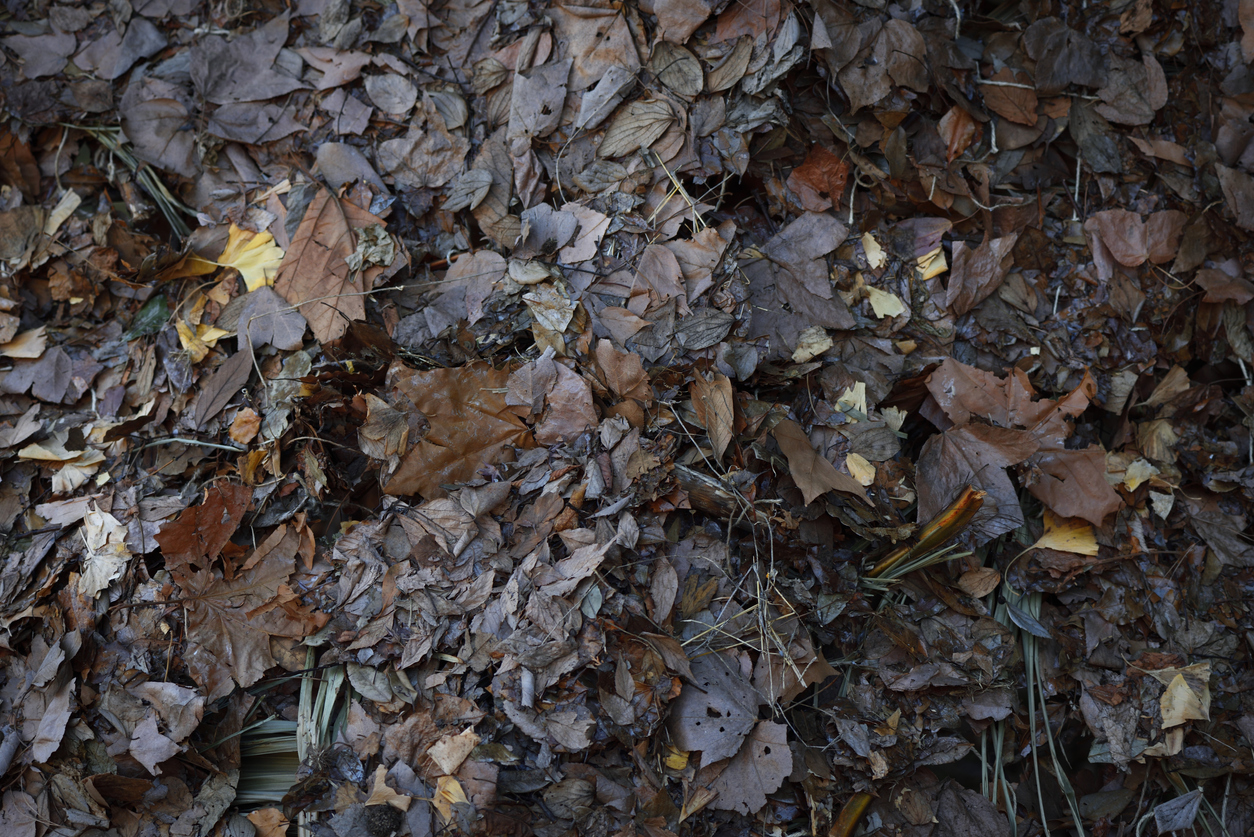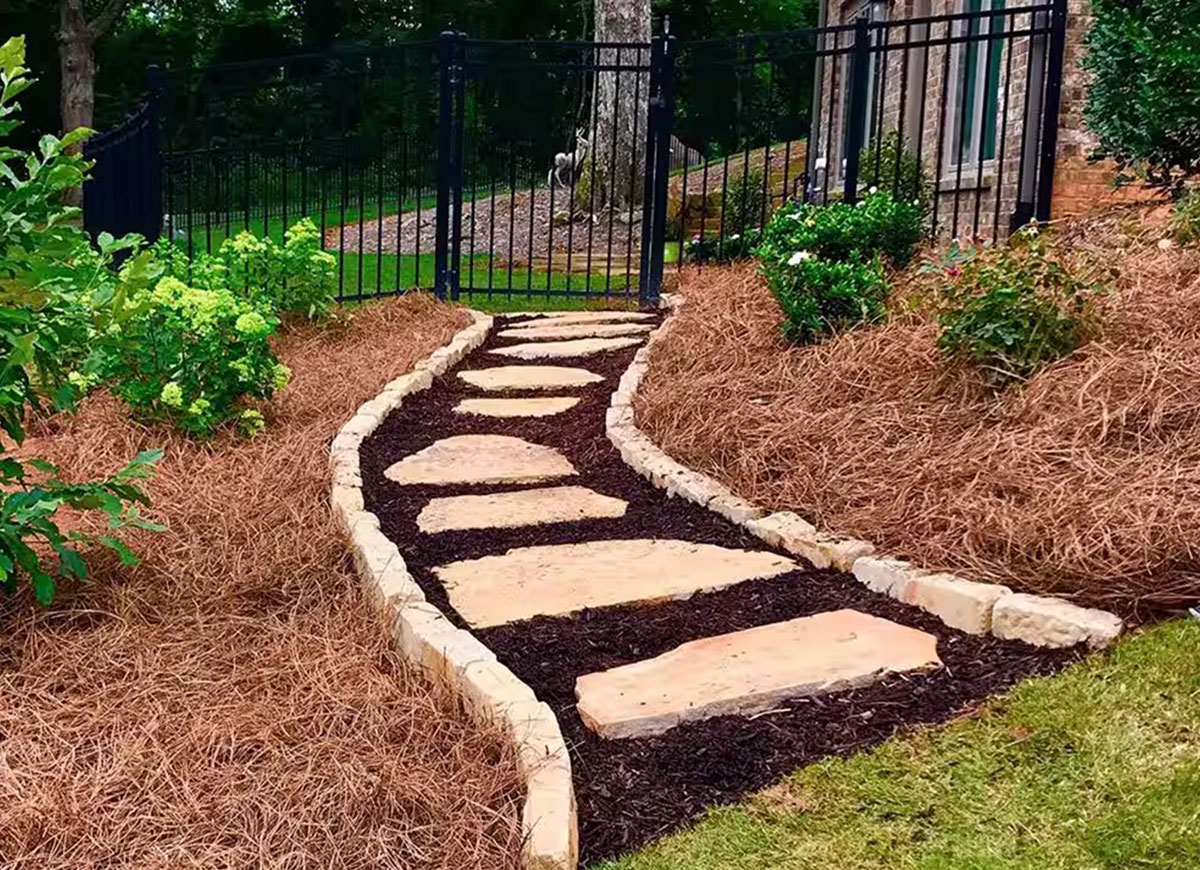

We may earn revenue from the products available on this page and participate in affiliate programs. Learn More ›
There are many different types of mulch available to homeowners, and each has its best use cases. For example, some mulches are designed for aesthetics alone, while others can actually help plants grow. Ahead, learn about our top three recommendations for the best mulch for flower beds—plus one to avoid in the garden altogether.
Why It’s Important to Mulch Flower Beds
Mulching the garden typically serves three main functions: it improves the soil, suppresses weeds, and saves water. Of course, it also gives your beds a nice, neat appearance.
As organic mulch breaks down, it can boost soil structure and increase available nutrients for plants. These conditions promote bigger, healthier blooms. At the same time, garden mulch creates a thin barrier on top of the soil that helps to prevent weeds and hold in moisture.
According to recent research published by Agronomy, “Mulches can help with root establishment and plant performance because their higher water retention stimulates roots to expand or establish beyond the trunk compared with bare soil roots.”
RELATED: Solved! Does Mulch Attract Termites?
The Top 3 Mulches for Flower Beds
All mulches fall into two categories: organic and inorganic. Organic mulches are preferred for flower beds because they add nutrients to the soil as they naturally decompose. Although inorganic mulches last a long time and look good, they don’t provide this added benefit and can often become too much of a barrier for growing plants to thrive. For these reasons, it’s best to avoid inorganic mulch in flower beds.
Compost

Often referred to as black gold, experienced gardeners know the value of compost. It’s made up of decomposed organic waste such as fallen leaves, grass clippings, food scraps, and cardboard. Over time, living organisms like earthworms and bacteria break down this waste into a rich humus that’s packed full of beneficial ingredients for plants.
Compost acts as a great mulch for perennial and annual flower beds because it boosts soil fertility, retains moisture, and reduces household waste. To add weed suppression to its list of benefits, apply a thick layer (3 to 6 inches) of compost mulch around your flowers.
Two things to keep in mind when using compost as mulch for flower beds: For one, it can take a few weeks to a full year to make your own compost. Of course, you can also buy it or sign up for a community composting program, if one is available to you, for a more consistent supply. Second, when applied to the surface of flower beds, compost breaks down quicker than other types of mulch. You’ll need to replenish it frequently throughout the growing season.
Leaf Mold

Similar to compost, leaf mold is another effective organic mulch for flower beds. It’s one of the most DIY-friendly forms of mulch (that is, if you have a decent supply of fallen leaves on your property). It’s made by simply piling leaves into an enclosure, wetting the surface, and covering it until next fall. The resulting crumbly compost can be applied to the surface of flower beds.
Leaf mold insulates the top layer of soil and inhibits weed growth. Furthermore, it improves the soil structure as it continues to break down. A growing medium with better aeration, drainage, and moisture retention can help plants take up nutrients more efficiently.
Organic leaf mold can take a significant amount of time to develop—approximately one year. It’s possible for homeowners with deciduous trees to establish an annual system for harvesting ready-to-use leaf mold while starting a new pile each fall. Shredding the leaves first can speed up the decomposition process.
RELATED: 8 Top Tips for How to Use Compost
Pine Straw Mulch

Well-known in the South and becoming more widely used across other regions in the U.S., pine straw is a go-to material for mulching flower beds. It not only helps gardeners conserve water and, with a thick enough layer, deter weeds, but it also enhances the soil with organic matter as it breaks down. See the pattern here?
With pine straw mulch, a little goes a long way. For example, a gardener can cover approximately 1½ square feet with 1 pound of pine straw, whereas a pound of traditional wood mulch only covers about ½ of a square foot. It also breaks down slower and lasts longer than compost and leaf mold, which are further along in the decomposition process.
To reap the rewards of pine straw mulch, it’s recommended to maintain a 3-inch layer in flower beds. You can purchase it at most garden centers and online, but if you have longleaf pine trees on your property, your pine straw mulch supply could be free!
RELATED: The Dos and Don’ts of Mulching the Garden
Final Thoughts
While organic mulches like compost, leaf mold, and pine straw are excellent options for flower beds because they are DIY-friendly, reduce chores like watering and weeding, and give back to the soil as they decompose, they won’t work for every garden. In fact, sometimes it’s best to forgo landscaping mulch altogether. Densely planted flower beds can form a natural canopy that shades the soil and reduces moisture loss without the help of mulch. And some flowers like peonies prefer good air circulation around their shallow roots. Too much mulch could encourage fungal diseases such as botrytis blight and powdery mildew to take hold. It’s important to consider special circumstances like these when determining the best mulch for your flower beds.
